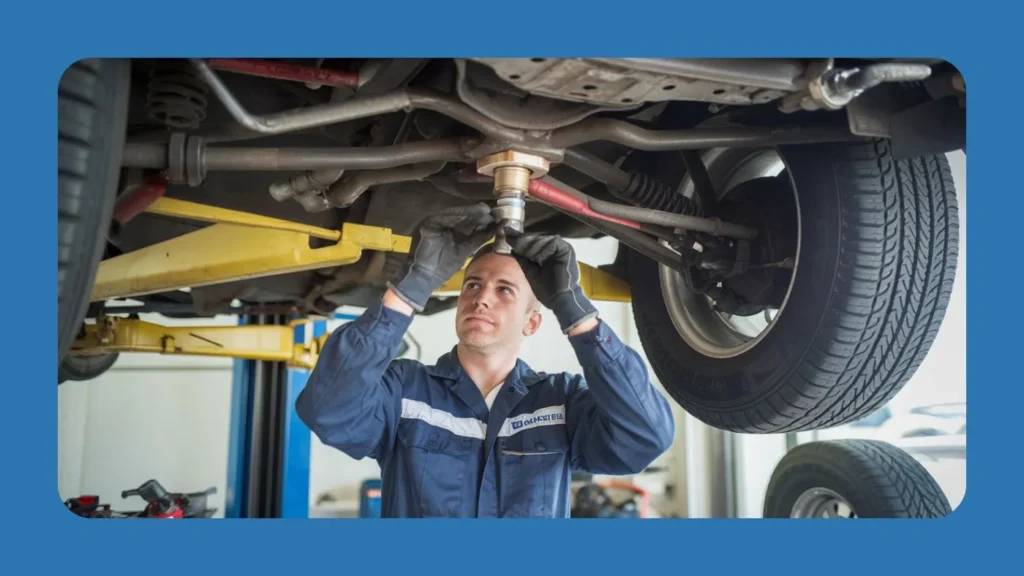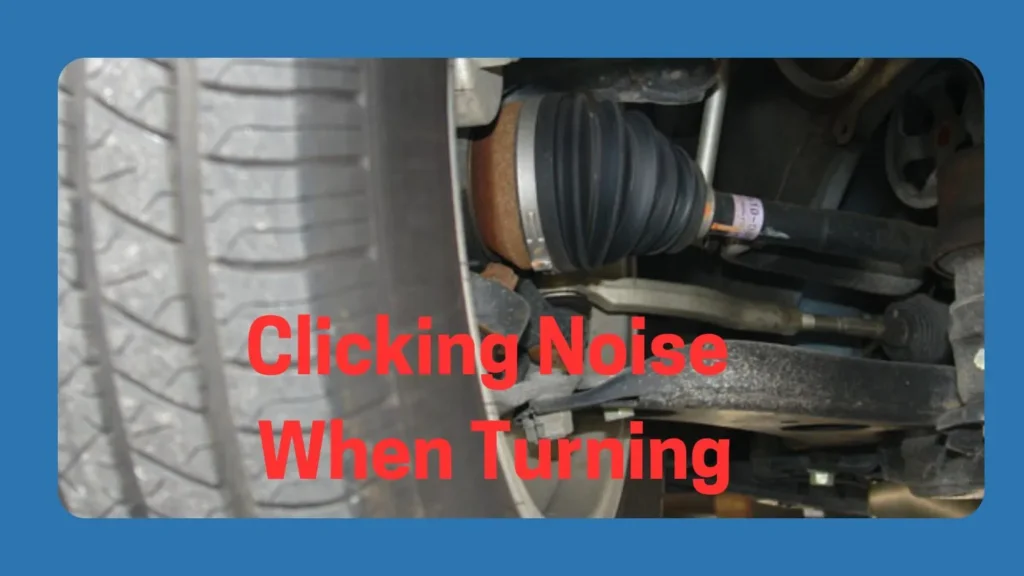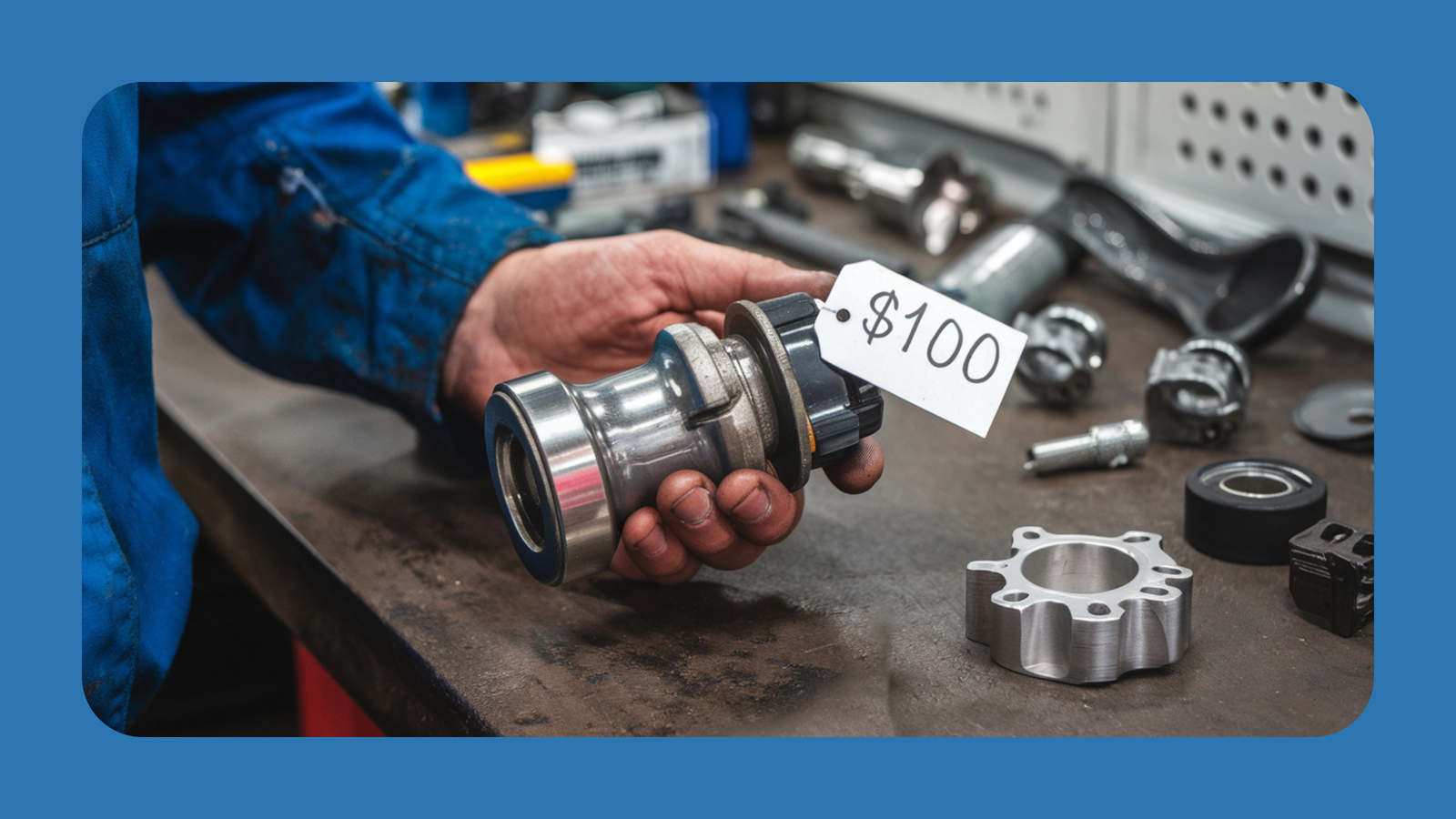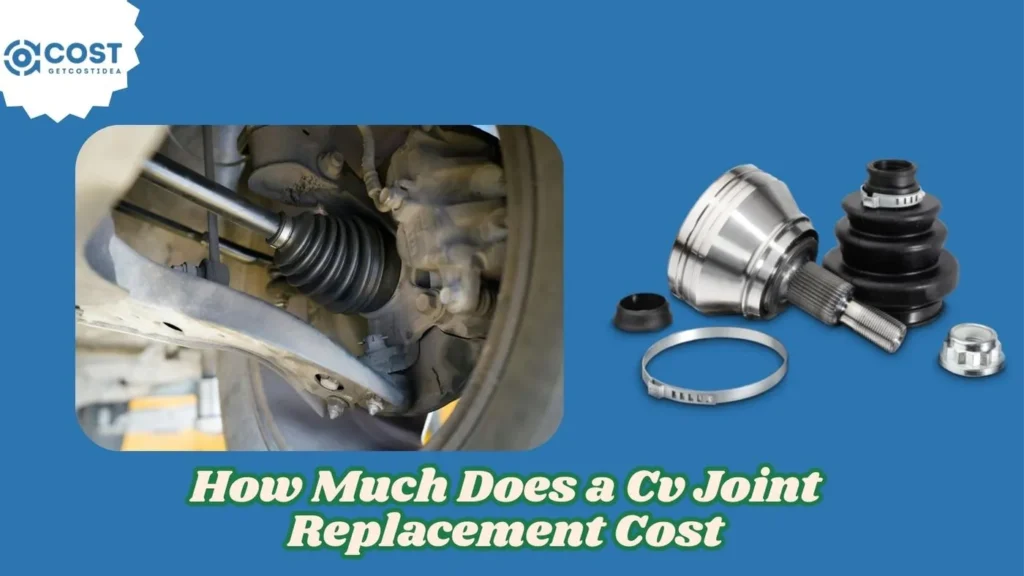In the U.S., a CV joint/CV axle replacement typically costs about $900–$1,400 per axle (parts & labor), with national averages around $1,100. Economy models can be $500–$800, while some luxury or AWD vehicles can exceed $1,500.13457
When your car’s CV joint or axle fails, you may hear clicking when turning or feel vibration during acceleration. This part transfers power from the transmission to the wheels while steering and moving with the suspension. Understanding the cost helps you plan the repair and avoid further damage.6
Prices vary by vehicle, local labor rates, and parts choice (OEM vs aftermarket). Below, we break down the factors so you can anticipate a fair estimate. All prices here reflect typical U.S. ranges (USD) as of October 1, 2025.

CV axles are small but critical: when they wear or lose lubrication, drivability and safety are affected. Address symptoms early to avoid secondary damage.6
Introduction To CV Joints
The CV joint (Constant Velocity joint) lets the axle transmit power to the wheels at a range of angles while the suspension moves and the wheels steer.
Function Of CV Joints
CV joints allow smooth, consistent torque delivery while turning and over bumps, maintaining traction and drivability.
Common Issues With CV Joints
Over time, the protective rubber boot can tear, letting grease escape and contaminants enter. Typical signs include clicking/popping when turning, vibration during acceleration, and grease on the inner edge of the tire—often meaning the axle should be replaced rather than rebooted.61
Signs Of A Faulty CV Joint

Recognizing issues early can prevent roadside breakdowns and reduce costs.
Symptoms To Watch For
Listen for clicking or popping while turning, feel for vibration during acceleration, and look for grease slung around the inner wheel/tire—classic signs of a torn boot and worn joint.6
When To Seek Professional Help
If you notice these symptoms, have a technician inspect the axle promptly. Many shops recommend replacing the complete axle assembly once contamination occurs, as it’s typically more reliable and economical than rebooting.1
Delaying repair risks loss of drive power and additional damage. Treat CV axle noise or boot failure as an urgent maintenance item.6
Factors Influencing Replacement Cost
Several variables drive the final price. Understanding them helps you compare quotes apples-to-apples.
Type Of Vehicle
Vehicle type & drivetrain matter: AWD/4WD, performance, and luxury models often use pricier parts and can require more labor. Economy FWD cars tend to be on the lower end. Typical per-axle ranges by segment are below (illustrative):
| Vehicle Type | Typical Cost Range (parts + labor) |
|---|---|
| Economy/Small Car | $500 – $1,0005 |
| Mid-size/SUV (FWD) | $800 – $1,40013 |
| AWD SUV/Truck | $900 – $1,60017 |
| Luxury/Sports | $1,200 – $2,000+147 |
Brand Of CV Joint / Axle
OEM vs. aftermarket: OEM axles generally cost more; quality aftermarket options can save money. Many shops prefer new complete axles over rebuilding joints due to reliability and total cost.1
Smart parts selection and comparing quotes can materially lower your final bill.1
Cost Breakdown
Most invoices include two main components—parts and labor—plus taxes/fees. Related parts may be added if damage is found.
Parts Cost

Shops commonly replace the entire CV axle assembly once a joint is contaminated. Depending on vehicle and part choice, the parts portion is often in the $300–$1,000+ range per axle. Aftermarket options for common models can be under $300; premium/AWD or performance applications can be higher.135
Small items (new axle nut, cotter pin, boots/clamps, seals) may add $20–$50.
Labor Charges
Typical U.S. labor rates in 2025 run about $80–$160 per hour, varying by region and shop type (independent vs. dealer).8 Replacing one axle usually books at about 1.5–3.0 hours, depending on vehicle design and corrosion, so labor commonly totals $150–$480 before taxes/fees.4
Always request a written estimate that separates parts, labor, and shop fees.
DIY Vs Professional Replacement
Deciding between DIY and professional service affects both cost and risk.
Pros And Cons Of DIY
DIY can save labor charges if you have the tools (jack stands, torque wrench, axle nut socket, pry tools) and experience. Risks include damaging seals, bearings, or the transmission, or under-torquing the axle nut (which can ruin a hub/bearing).
Benefits Of Professional Service
Professionals follow torque specs and procedures, can spot related wear (wheel bearings, ball joints), and typically warranty parts and labor. For many owners, this peace of mind outweighs savings from DIY.
Additional Costs To Consider
Repair totals can rise if related components are worn or damaged.
Related Repairs
- Axle (other side): If mileage/symptoms suggest it, some owners choose to replace both front axles together for balanced wear.
- Boots/Seals: Torn boots or leaking transaxle seals may be replaced during the job.
- Wheel Bearing/Hub: Noise/play may warrant replacement; costs vary widely by vehicle.
- Wheel Alignment: Not always required for axle work alone, but may be recommended if suspension components were disturbed.
Unexpected Expenses
- Added labor for seized fasteners or rust.
- Specialized tools and fluids (e.g., transmission fluid top-up if a seal is disturbed).
- Urgent or after-hours service premiums.
Below is a quick summary table of potential add-ons (illustrative ranges):
| Item | Estimated Cost |
|---|---|
| Second Axle (opposite side) | $500 – $1,400 per axle15 |
| Boot/Clamp Kit (if still viable) | $50 – $150 |
| Wheel Alignment (if needed) | $100 – $200 |
| Wheel Bearing/Hub (if worn) | $200 – $600+ (parts & labor) |
| Additional Labor (rust/seizure) | $80 – $160 per hour8 |
Ways To Save On Replacement
You can often reduce costs without compromising safety.
Using Aftermarket Parts
Quality aftermarket axles for common models can be significantly cheaper than OEM while still offering good warranties. Confirm fitment by VIN and choose reputable brands.
Finding Discounts
- Ask for multiple quotes (independent vs. dealer).
- Use online coupons or loyalty programs at parts retailers.
- Schedule non-urgent work during regular hours to avoid surcharges.
Frequently Asked Questions
How Much Does A CV Joint Replacement Cost?
Expect $900–$1,400 per axle for most U.S. vehicles (parts & labor). Economy models can be lower; luxury/AWD can be higher.134
What Affects CV Joint Replacement Cost?
Make/model (AWD, performance, luxury), local labor rates, and parts (OEM vs. aftermarket). Related wear (bearings, seals) can increase totals.18
Can I Drive With A Bad CV Joint?
It’s unsafe. A failing axle can eventually lose drive power. Get symptoms checked promptly: clicking when turning, vibration on acceleration, or grease on the inner tire/wheel.6
How Long Does A CV Joint Replacement Take?
Typically 1.5–3.0 hours per axle, depending on the vehicle and condition of fasteners/related parts.4
Conclusion
As of 2025-10-01, typical U.S. pricing is $900–$1,400 per axle, with averages near $1,100. Costs vary by car, parts, and local labor rates. Compare quotes, ask for parts/labor line items, and consider reputable aftermarket axles where appropriate.138
Staying ahead of symptoms protects safety and can prevent bigger bills later. When in doubt, consult a trusted technician.
References
- RepairPal — CV Axle Replacement Cost Estimate (accessed 2025-10-01).
- RepairPal — CV Joint Replacement Cost Estimate (accessed 2025-10-01).
- AutoNation Mobile Service — CV Axle Replacement Cost ($930–$1,400).
- J.D. Power — CV Axle Replacement Cost & Time (1.5–3.0 hours).
- YourMechanic — Sample CV Axle/shaft Assembly Pricing by Vehicle.
- AutoZone — How to Tell if a CV Axle Is Bad (symptoms).
- ConsumerAffairs — Car Axle Replacement Cost ($500–$2,500 range).
- NeedMechanic — Average U.S. Mechanic Labor Rates in 2025 ($80–$160/hr).


